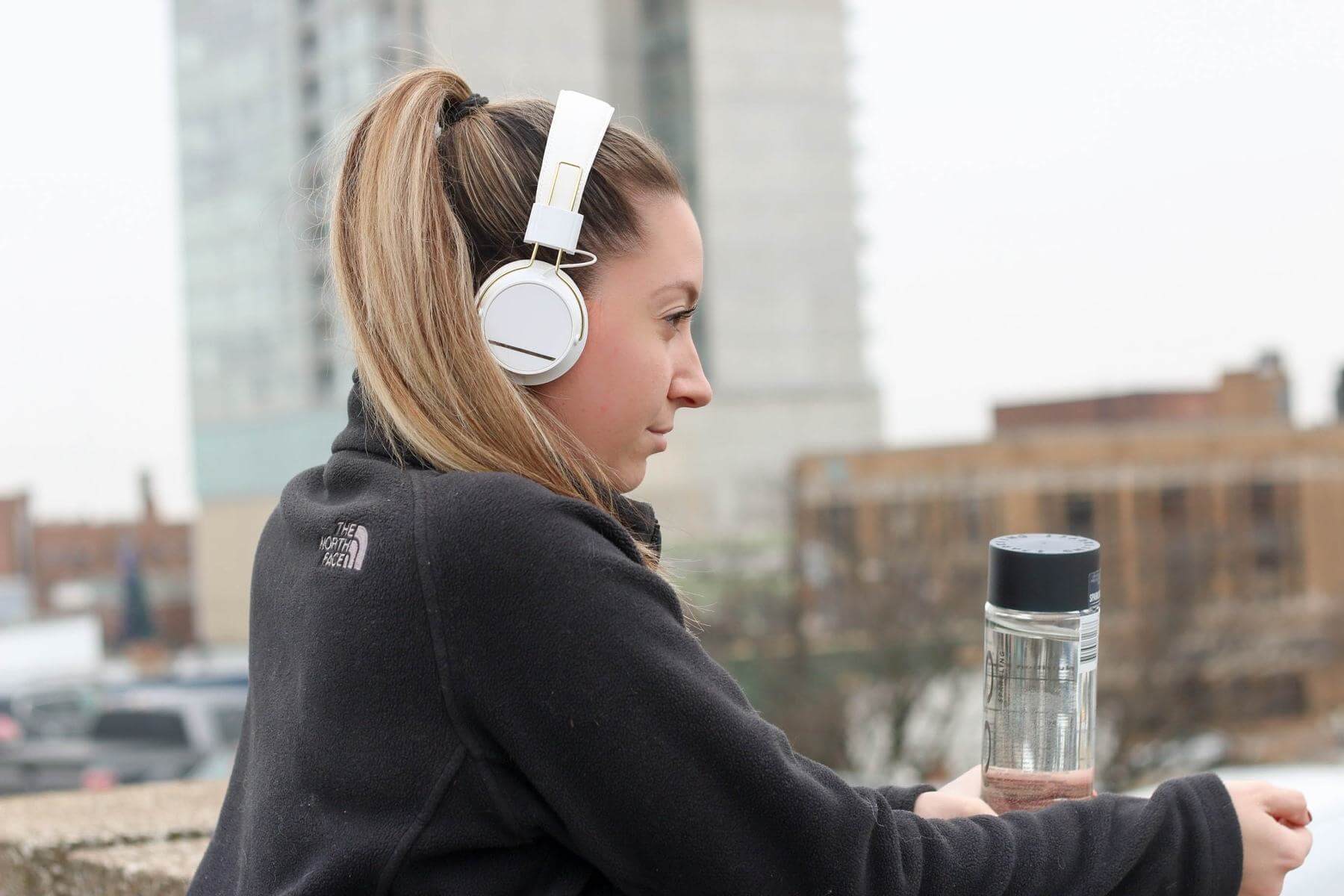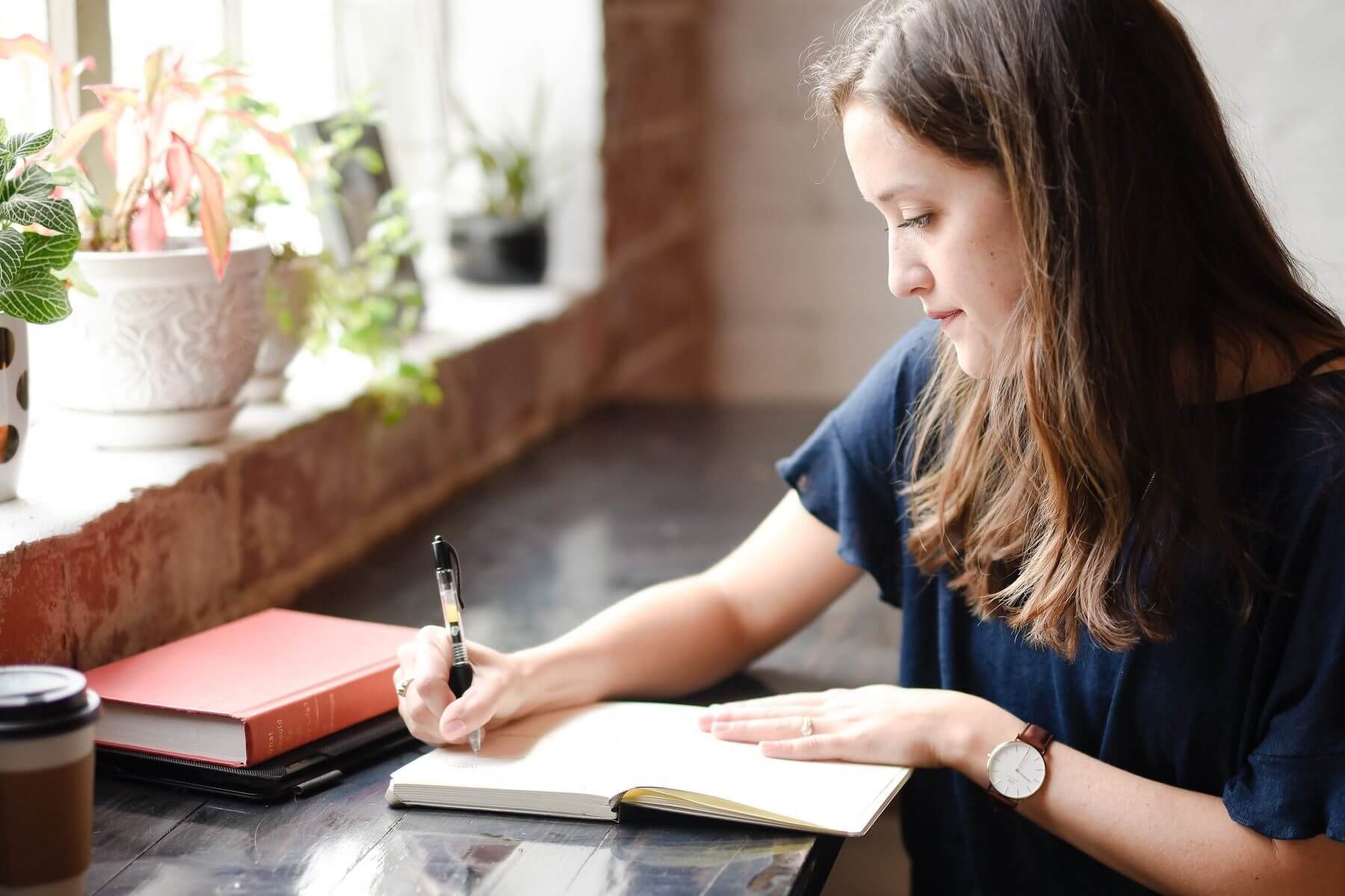Approximately 40 million adults in the United States struggle with some type of anxiety disorder. What’s more, women are twice as likely as men to be affected by anxiety. It’s not far fetched to assume that many of you struggle with anxiety on a weekly, if not daily, basis. If you’re among those who regularly deal with anxiety-related issues, there’s no doubt that you’ve found a variety of coping mechanisms. However, there’s no time like the present to add new strategies to your toolbelt. Whether you’re turning to a new hobby, a new app, a new breathing technique or a new gadget, there are more opportunities than ever to help fend off anxiety-ridden moments. Today, we’re chatting with a few experts to help you double-down on your efforts to maximize your zen. Through their expertise, you’ll undoubtedly gain a few new tricks for keeping your anxiety at bay and your mind at ease.
As a doctor of nursing practice, a family nurse practitioner, a personal trainer and the founder of the newly opened STAT Wellness on Atlanta’s Westside, Kristin Oja has seen more than her fair share of patients and clients with anxiety throughout her career. In fact, Kristin says anxiety is more than a day-to-day problem; it’s an epidemic. The cause? Kristin explains there are many contributing variables at play. “Social status and the desire for more and more, social media and ‘unhealthy’ expectations of what your life should look like, cell phones allowing us to constantly be connected, unrealistic deadlines and trying to be superhumans taking on way to much are all worsening anxiety,” she says.

Licensed Professional Counselor Amber Martin Corbi agrees. “We live in such a high-paced, overstimulated society. There is so much unspoken and spoken pressure to be successful, have a happy family, enjoy an active social life and have all the latest toys — all while being healthy and looking the part. It’s unrealistic to manage it all.”
Take stress for example. As Kristin explains, “Stress is a perception; that is why not everyone views a situation the same. Some people have a tougher time managing stress while others are able to shake it off easier.” Regardless of how you manage stress, the reality is paying attention to your stress and noticing when it shifts to more than a fleeting moment, is an integral part of keeping it in check. “It is important to note that there may be some real internal imbalances worsening anxiety such as hormonal imbalances, food intolerances, poor digestive health and nutritional deficiencies,” Kristin says. “Therefore, it is important to have an evaluation by a healthcare provider if your anxiety is not improving.”
Besides being a buzzy term that we often joke about, the theory of “treating yourself” and “self-care” are actually critical components of managing anxiety. “Self-care plays a huge role. When you are running on empty, it’s harder to access the healthiest parts of yourself — the parts that make wise decisions, set healthy boundaries and cope with stressors. Self-care fills the tank,” Amber explains. Kristin echoes Amber’s sentiments. “Self-care allows us to center ourselves, have some time to disconnect and do something we enjoy. Even deep breathing has been shown to help reduce anxiety.”
So what other strategies can you employ to feel calm and bring your anxiety levels down? Both Amber and Kristin give us a few ideas.
Journaling
Amber explains, “I’m a huge fan of stream-of-consciousness journaling. Find a time during the day to fill up two to three pages of a journal with all your worries, thoughts and feelings. This helps contain your worries to a certain time and place each day, but it can also help give you clarity about the underlying feelings.”
Another similar idea? Gratitude journaling. Kristin says, “Write one positive thing that happens each day in a journal [that you] can always refer back [to].”

Meditation
“There are so many amazing apps out there,” says Kristin. “My favorite is Meditation Studio App or HeadSpace.” Amber agrees about HeadSpace and also suggests Insight Timer and Calm. “A meditation practice can also be incredibly helpful. If meditation is particularly difficult for you, this headband is a good option for keeping your mind on track.”
These same meditation apps can also help in guided breathing exercises, or if you’re less app-inclined, simply employ the 4-4-4 method. Kristin explains how to get started: “Inhale for four seconds, hold your breath for four seconds, slowly exhale for four seconds, and repeat four times.”
The Spire
Technology is one of our greatest resources, so it should come as no surprise that there’s a gadget specifically for anxiety and breathing. Amber explains, “The Spire is a device that can be really helpful in monitoring your breathing and anxiety levels in real-time. You integrate it with your smart device, and it alerts you when your stress levels spike so that you can take a deep breath.”
Apps
The reality is that we carry a tiny device around with us all day, every day, that is essentially our biggest toolbox. Within the app store, there are hundreds of opportunities for taking hold of your anxiety. “Apps like the Worry Box, Moods, or Worry Watch help you log your anxieties, track them objectively and identify coping strategies,” says Amber.

Repetitive Hobbies
According to Amber, repetitive hobbies that “you can get lost in” are another way to self-soothe. “Activities like coloring books, knitting, putting together a puzzle and reading a novel can calm the nervous system and give you a break from the fight or flight response, which is caused by anxiety or fear.” Another idea? Find a loved one or a pet. “Snuggling a pet or asking for a 90-second hug from a loved one is also great if you are near panic level,” recommends Amber.
Community Involvement
Never underestimate the power that making other people feel good can have on your head and your heart. As Kristin says, “Connection is huge! Get involved in the community whether it’s with a sport, church or book club.” Even when you feel like you don’t want to be around others, that might be exactly when you need an emotional connection the most.
Working Out
Kristin recommends a number of active physical activities for coping with anxiety. “Go for a walk, try yoga or stretching or, depending on your cortisol levels, exercise.” Amber continues, “Getting active and finding a way you enjoy moving your body can be really helpful in discharging anxious energy.”

Bodywork
Along those same lines, seeking out opportunities for bodywork can also be helpful. Activities like “massages, acupuncture, and reiki give our bodies a physical release from all of the tension being held,” says Amber.
Sensory Work
Activating each of your senses is another way to keep calm. Amber explains, “Engage your senses so you can ground in the present with things like sipping your favorite tea, diffusing de-stressing essential oils like lavender, creating a calm playlist, taking a warm bath or playing with Silly Putty or a stress ball.” Combine bodywork and sensory work with an epsom salt bath, which Kristin explains is “rich in magnesium to help with muscle relaxation.”
Therapy
Finally, Amber believes that everyone could benefit from therapy. She says, “Just because you struggle with anxiety, it does not mean you are faulty or broken. I see so many clients who carry deep shame about their struggles with anxiety and depression, but I see it as a symptom that your body is manifesting to let you know that something is out of balance or needing a little more attention in your life.” If you think you should seek more help beyond a few apps or hobbies, speak with your healthcare provider and determine possible next steps.
As you choose your own anxiety-reducing methods or add to your already stocked toolbox of ideas, Kristin encourages you to think about the things that make you feel the best you can. “One of the first things I ask my clients to do is to really focus on the past few months and reflect on when they felt the happiest and the most at peace and to do that more often. We often get so busy we forget what sets our soul on fire.” Don’t ignore those things; tap into them.
Thank you Amber and Kristin for offering your anxiety expertise and guidance.
**********
Check out more health & wellness articles in our archives. Click HERE!



















